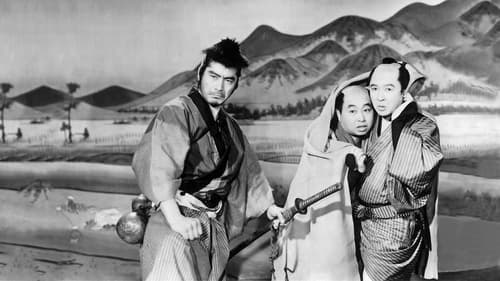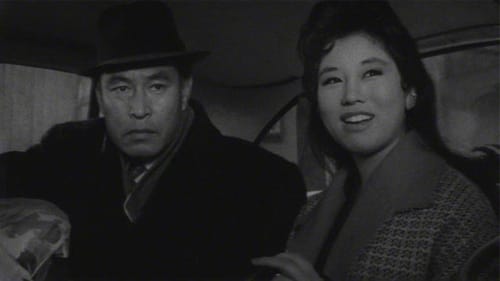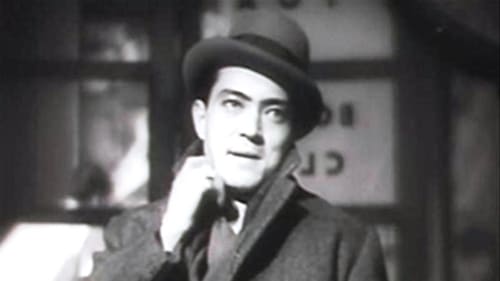Yaeko Mizutani
出生 : 1905-08-01, Shinjuku, Tokyo, Japan
死亡 : 1979-10-01

江島一家二代目を襲名した江島美樹は大阪にやって来た。その頃、あくどい東西会の千田兄弟に絶縁状を叩きつけたことから島田が殺された。その日、東西会の五十嵐が、刑期を終えて出所した。美樹は通夜の席で島田組の再興を誓った。ところが、千田兄弟は島田の負債八百万円の期限切れをたてに家屋敷までも差押えにかかった。美樹はその話をつけるために東西会を訪ねたが、だまって帰す千田ではなかった。ライフル銃を発射しながら迫る一味から、美樹を救ったのは、九州からやって来た仁侠男荒巻だった。荒巻が一味相手に鉄腕をふるったことから、千田組の策略は一層悪辣になった。そして、千田にそそのかされた島田組の子分が荒馬親分の縄張りを荒した。この一件は、美樹に指をつめさせた。五十嵐は、度を重ねる千田兄弟の行為をたしなめたが効果はなかった。それどころか、千田に射たれ重傷を負う始末だった。やがて、美樹が短刀を構えて東西会に乗込んだ。五十嵐は仁侠の義理からひん死の身を美樹に向けなければならなかった。五十嵐を倒した美樹に千田たちの銃が火を吐いた。しかし、美樹の短刀は次々と子分を倒し、やがて千田の悪運もつきた。五十嵐は、美樹の活躍を見とどけると世を去った。

Could I But Live

Ringo
不忍池近くの老舗のフレンチレストラン青龍軒を飛び出して、とんかつ屋「とんQ」を始めた久作は名人気質の頑固者。師匠だった伝次とは、伝次の妹と結婚したこともあって犬猿の仲。伝次の息子・伸一はコック修行を投げ出して、久作のところに入り浸り、とり子とイチャイチャ。そして、伝次の後妻の連れ子・復二は未来食クロレラの研究に熱中していた。そんな中、青龍軒が経営不振で人手に渡ることに…
個性あふれる人物たちが織りなす、ユーモアとペーソスの大型喜劇。

Oyoshi
加東大介と小林桂樹が弥次喜多コンビをユーモラスに演じた喜劇。作品のネタに困った十返舎一九は、栃面屋弥次郎兵衛と喜多利屋喜多八に金を与え二人に旅をさせる。だが二人をつけねらう謎の美男子に旅を邪魔され、弥次さん喜多さんは面白くない。実はこの男、偽小判事件にからみ姿を消した十兵衛の行方を追う幕府の隠密で、一緒に出発した十兵衛の娘お雪とはぐれてしまっていた。旅先で数々の失敗を繰り返す弥次喜多コンビだったが、二人の行動が偽小判事件を解決に導くことになり…。

Osaka Kyoko
A movie adaptation of Funayama Kaoru's novel of the same name, which depicts the story of a modern youth who is attracted to the evil path. Saburi Shin, a well-known actor who also demonstrated his skill as a director in a bold social work, embodies a person with a complicated dilemma in a shadowy manner, and is a dramatic work that plays a part in the lead role.

En Matsuyama
An Ishiro Honda film.

Novuko Iba, Itsuko's mother
An elderly woman devoted to her foster-daughter searches for a good husband for her.

Otae

Keiichi's mother Ineko

Asako works in a hostel for troubled young women. When a beautiful young girl is brought in one day after committing theft, Asako finds out from the older widow she works with that the new girl is undoubtedly her half-sister. When the younger sister suddenly flees on account of a misunderstanding, Asako makes up her mind to find the mother who deserted them both.

A 1946 Japanese film directed by Keigo Kimura.

明治十二三年頃、横浜での物語。ある露路の長屋に栗崎菊栄という裁縫の師匠がやもめ暮らしをしていた。隣には月琴の流しをしているお絹という美しい娘が母と二人暮らし。お絹は稼業に似ずしおらしい素直な娘である。彼女は貿易商阿島家の駆者をしている江口信吉という将来弁護士を志す青年と愛し合う仲であった。阿島は信吉を見込んで跡取りに迎える…。

Utajo
Uta’s mother died when she was six years old; her father she never met. She was forced to adopt a traveller’s life when her grandmother died, and now she is a dancer and part of a family of actors who travel from town to town, setting up street performances. A way of escape from this marginal existence arises when she gets the chance to move to tea merchant Hiramatsu’s place, where she is asked to teach his daughter to dance.

An early Japanese sound film, notable for being the only Japanese film ever to use the Western Electric Sound System. Contrary to most Western sources that give sole directing credit to Eizo Tanaka, it was actually co-directed by six different directors, Tanaka, Kazue Kimura, Kazuo Takimura, Ryoji Mikami and Hidekuni Ouchi.

Sato
Early Japanese sound film, a remake of Josef von Sternberg’s DOCKS OF NEW YORK set in Yokohama.

An early Japanese film

Directed in 1921








